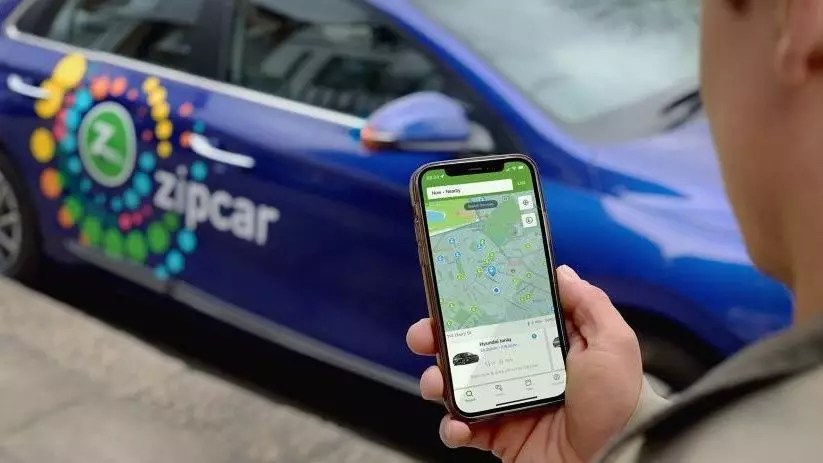In recent years, the proliferation of shared mobility services has transformed urban transportation, making it more accessible and convenient. Among these innovations, bike-sharing programs have gained popularity, but car-sharing schemes are still relatively unfamiliar to many, particularly in smaller towns. The recent incident involving Zipcar—a major player in the car-sharing landscape—serves as an alarming reminder of the inherent risks in such services, particularly when they rely solely on mobile applications for operation.
On Black Friday, a significant disruption occurred within Zipcar’s operations, reverberating throughout its customer base. The company experienced a major outage that left many users frustrated and stranded. Customers who had rented vehicles found themselves unable to unlock or access their cars due to the breakdown of the Zipcar app. Reports surfaced about individuals being unable to retrieve their belongings, including essential items like house keys, all while sitting helpless on the sidewalk for hours. This predicament raises serious questions about the reliability and stability of a service that controls access to a vehicle through a single point of failure—the mobile application.
A customer’s experience captured the chaos succinctly, stating, “This is insane. Rented a car and went to buy a quick drink to the store, and all of a sudden the car is locked.” Such incidents highlight the fragile nature of technology-dependent services and the repercussions of system failures, especially during peak demand periods like Black Friday. Significantly, it wasn’t just a minor malfunction—we are talking about a “clusterf***,” which illustrates the scale of inconvenience faced by numerous users.
Historically, companies like Zipcar provided physical keys and cards, offering a level of redundancy that today’s all-digital approaches lack. The reliance on the app for car unlocking and rental management means that any technical failure leaves consumers out in the cold—literally and figuratively. As noted by Ars Technica, this technological pivot away from physical keys to an app-based management system is a gamble that puts users at risk, especially when the interface is not functioning effectively.
The rationale behind this shift may lie in the quest for convenience and efficiency; however, it exposes significant vulnerabilities. It is analogous to storing critical data solely in the cloud—while the convenience is tempting, the risk of system failures or outages, as highlighted during the Zipcar debacle, raises serious concerns. The reliance on a single digital platform to manage vehicle accessibility is a recipe for disaster, particularly in moments when user demand surges.
In response to this particular outage, Zipcar acknowledged the issue stemmed from “increased site traffic” related to promotional activities, leading to SMS delivery service constraints. While the company pledged to take corrective measures, the fallout from the incident casts a long shadow on public perception regarding the reliability of digital-first car-sharing platforms.
While Zipcar offered various remedies—refunds on rentals, credits for future trips, and reimbursements for alternate transportation—the immediate impact on consumer trust cannot be easily mended. A mere promise of future service improvement may not suffice to reclaim the confidence of an audience subjected to unwarranted inconvenience. Trust is hard-earned and easily lost; how will Zipcar manage this trust deficit moving forward?
For consumers, this incident serves as a cautionary tale, raising deeper questions about the sustainability and user-friendliness of app-dependent car-sharing services. Risk-averse individuals might hesitate to rely on services that have demonstrated vulnerability to technical failures. How can users feel secure in opting for a service that may leave them stranded simply because a mobile app is down?
While the convenience of car sharing can be appealing, this experience demonstrates that consumer reliance on technology carries significant risks, especially when customer access is purely digital. As urban landscapes continue to evolve alongside technology, understanding the balances between innovation, reliability, and user security remains paramount.
The fallout from Zipcar’s recent outage serves as a critical lesson for both car-sharing services and their users. As we navigate the future of shared mobility, striking a balance between technology dependence and practical reliability will be essential. Customers must weigh the convenience offered by app-based systems against the potential for disruption—and possibly seek alternatives that provide a greater sense of security, particularly in times of high demand. With each incident like this, the dialogue surrounding the evolution of car-sharing continues, urging both providers and users to rethink their relationship with technology.


Leave a Reply